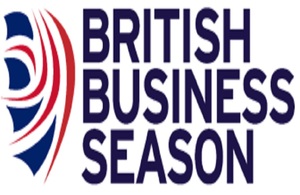- More than 1 in 10 people in England have been tested at least once since the service launched
- Weekly statistics show NHS Test and Trace has now successfully reached almost 500,000 people testing positive and their contacts
- The median distance travelled for in-person tests is 5.2 miles ‘as the crow flies’, with 28 new local test sites opening this week to help reduce distances even further
This comes after it was announced that those people asked to self-isolate who are on low incomes and are unable to work from home will be eligible for financial support of £500 to stay at home, while those breaking the rules risk fines of at least £1,000.
Since the launch of NHS Test and Trace on 28 May, more than 11% of people living in England have been tested at least once. This includes regular retesting of care home staff and residents, as the service sends out over 100,000 tests a day to care homes.
The number of people testing positive this week has increased, with NHS Test and Trace continuing to reach the vast majority of positive cases and their contacts. This week the service successfully reached 77.7% of people who tested positive and 84.7% of the contacts where communication details were provided.
Work continues to expand testing capacity across the UK, to reach a target of 500,000 tests a day by the end of October. More labs across the country are joining the network, with automation driving increases in tests processed each day at the country’s Lighthouse Labs. In a drive to reach 500, 28 new test sites will be opening this week, reducing the distance people need to travel to get a test.
The statistics show that the median distance travelled currently stands at 5.2 miles. Since 16 September, daily testing capacity has already increased by nearly 16,000 tests a day, from 242,911 to 258,877 on 23 September. The median time taken to receive a result from a test taken in person was 30 to 34 hours, with 52.9% of results received the day after they were taken.
Interim Executive Chair of the National Institute for Health Protection Baroness Dido Harding said:
NHS Test and Trace has reached a milestone moment this week, successfully reaching almost half a million people and advising them to self-isolate. We are supporting those testing positive and their contacts to stay at home to stop transmission.
The new COVID-19 app launched today will help us go even further, alerting users if they have been in close contact with someone with the virus, even if they do not know each other. I hope everyone across England and Wales downloads it today to help protect those around them from the spread of the virus.
While millions of people in England have now successfully been tested, we continue to see unprecedented demand. We continue to work tirelessly to build our testing capacity to meet this and our target of 500,000 tests a day, building our lab network and testing sites across the country.
The guidance for testing remains in place, with only those experiencing symptoms eligible for tests. Symptoms of coronavirus are a new continuous cough, high temperature and/or a loss or change in taste or smell. People requiring tests are advised to make appointments at test sites, with new slots available throughout the day.
In response to unprecedented demand, a list of priority groups has been published outlining how the government is managing capacity to protect the most vulnerable, protect the economy and manage outbreaks. Priorities include NHS patients and workers, care home residents and staff, teachers and areas of high prevalence. Essential workers can book a test across the country by declaring their occupations.
The new NHS COVID-19 app has also launched today, with people across England and Wales encouraged to download it to help control transmission alongside national and local contact tracing. The app uses low-energy Bluetooth to log the amount of time you spend near other app users, and the distance between you, so it can alert you if someone you have been close to later tests positive for COVID-19 – even if you do not know each other. The app has been designed with user privacy in mind, so it tracks the virus, not people, and uses the latest in data security technology to protect privacy.
The weekly statistics from the 16th week of NHS Test and Trace show in the most recent week of operations (10 to 16 September):
- testing capacity increased by 3% from the previous week to 1,663,155 (pillars 1 and 2) across the UK
- 77.7% of people who tested positive and were transferred to the contact-tracing system were reached and asked to provide information about their contacts
- 84.7% of contacts where communication details were given have been reached and told to self-isolate
- pillar 1 testing capacity was at 575,155, similar to the previous week (swab testing in PHE labs and NHS hospitals for those with a clinical need, for health and care workers, and to help manage outbreaks – including in care homes)
- pillar 2 testing capacity was at 1,089,000, an increase of 5% since the previous week (swab testing for the wider population administered by commercial partners across the UK)
- pillar 3 testing capacity was at 840,000, the same as the previous week (antibody testing administered by PHE – these are serology tests to show if people have antibodies from having had COVID-19)
- pillar 4 testing capacity was at 28,800 a decrease of 60% since the previous week (swab testing for large-scale surveillance studies on the spread of COVID-19)
Statistics from the 16th week of operation of NHS Test and Trace show that since the service launched:
- 497,367 people have been reached by the service. This includes both those testing positive and their contacts
- 86.4% of all contacts where communication details were given have been reached and told to self-isolate
